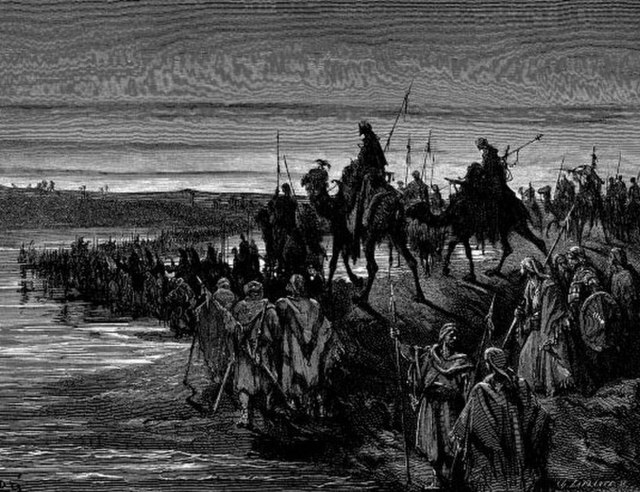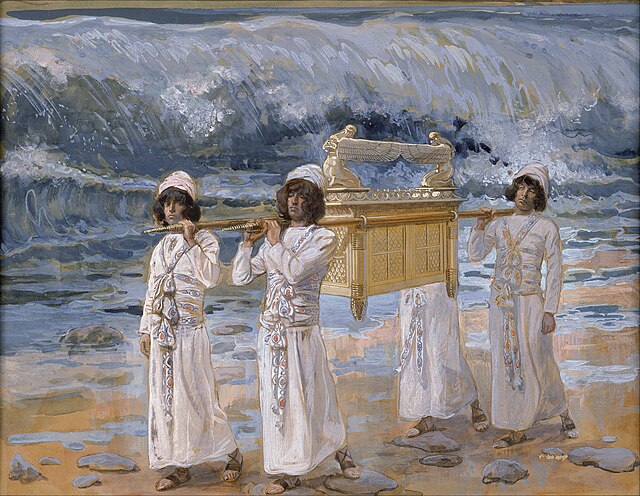The Book of Joshua is the sixth book in the Hebrew Bible and the Old Testament, and is the first book of the Deuteronomistic history, the story of Israel from the conquest of Canaan to the Babylonian exile. It tells of the campaigns of the Israelites in central, southern and northern Canaan, the destruction of their enemies, and the division of the land among the Twelve Tribes, framed by two set-piece speeches, the first by God commanding the conquest of the land, and, at the end, the second by Joshua warning of the need for faithful observance of the Law (torah) revealed to Moses.
Early 4th-century CE manuscript of Joshua from Egypt, in Coptic translation.
Joshua and the Israelites crossing the Jordan (Gustave Doré)
Joshua passing the River Jordan with the Ark of the Covenant, painted by Benjamin West, 1800
The Ark Passes Over the Jordan (watercolor c. 1896–1902 by James Tissot)
The Hebrew Bible or Tanakh, also known in Hebrew as Miqra, is the canonical collection of Hebrew scriptures, comprising the Torah, the Nevi'im, and the Ketuvim. Different branches of Judaism and Samaritanism have maintained different versions of the canon, including the 3rd-century BCE Septuagint text used in Second Temple Judaism, the Syriac Peshitta, the Samaritan Pentateuch, the Dead Sea Scrolls, and most recently the 10th-century medieval Masoretic Text compiled by the Masoretes, currently used in Rabbinic Judaism. The terms "Hebrew Bible" or "Hebrew Canon" are frequently confused with the Masoretic Text; however, this is a medieval version and one of several texts considered authoritative by different types of Judaism throughout history. The current edition of the Masoretic Text is mostly in Biblical Hebrew, with a few passages in Biblical Aramaic.
Hebrew bible (Tanakh) in the collection of the Jewish Museum of Switzerland, printed in Israel in 1962.





